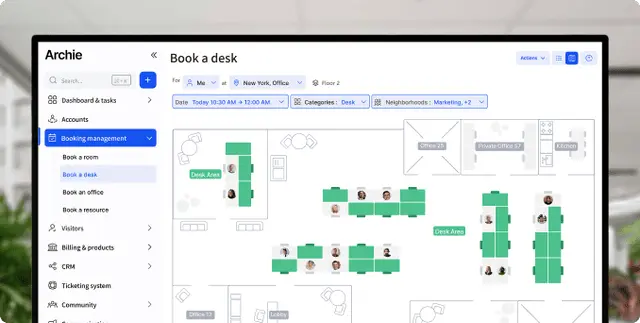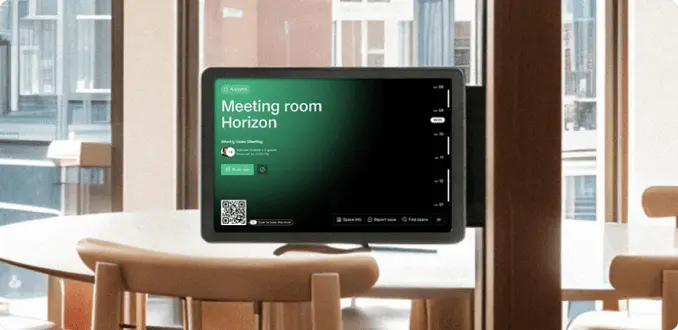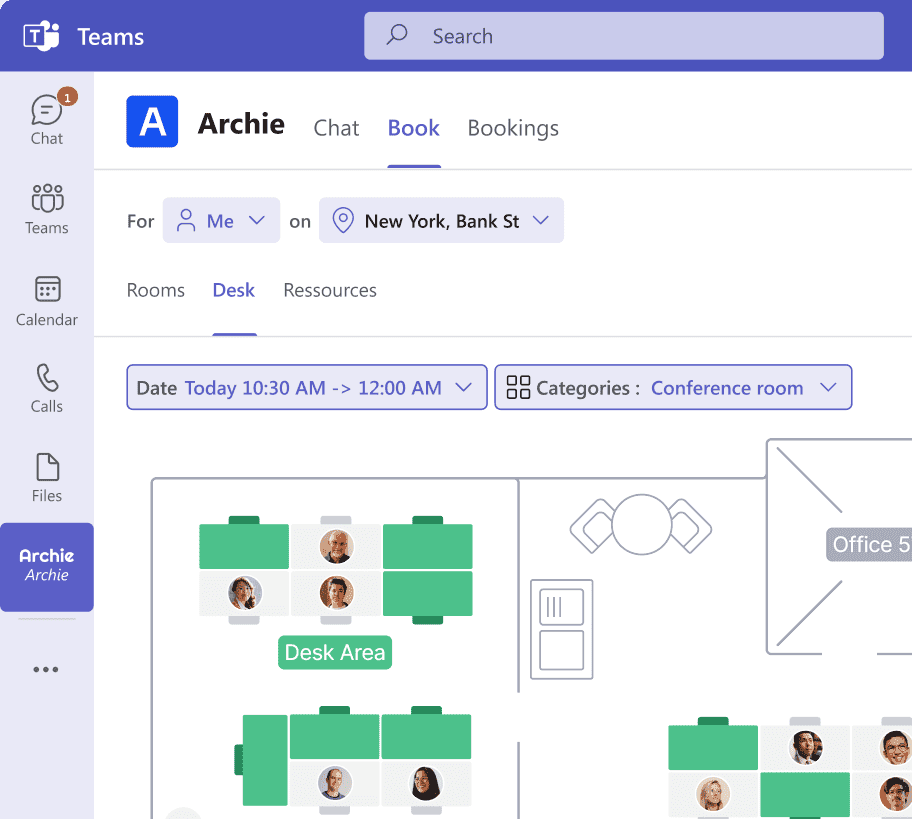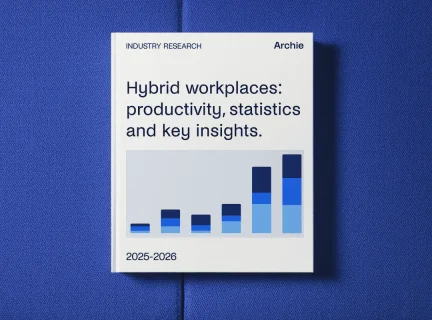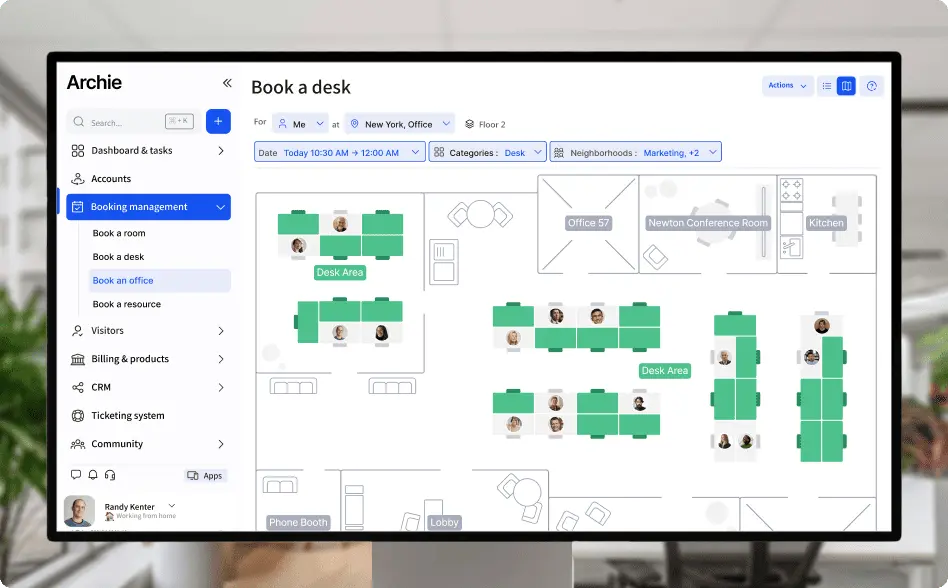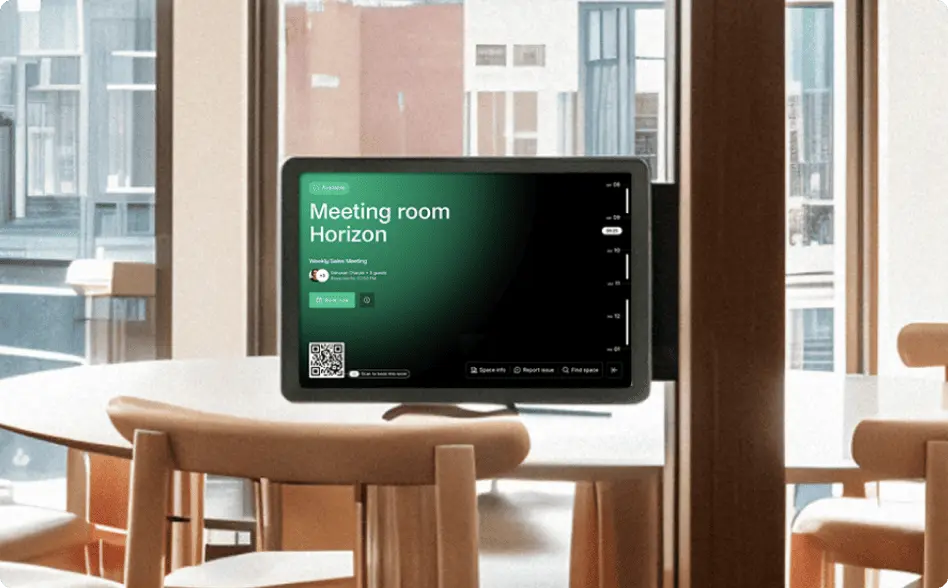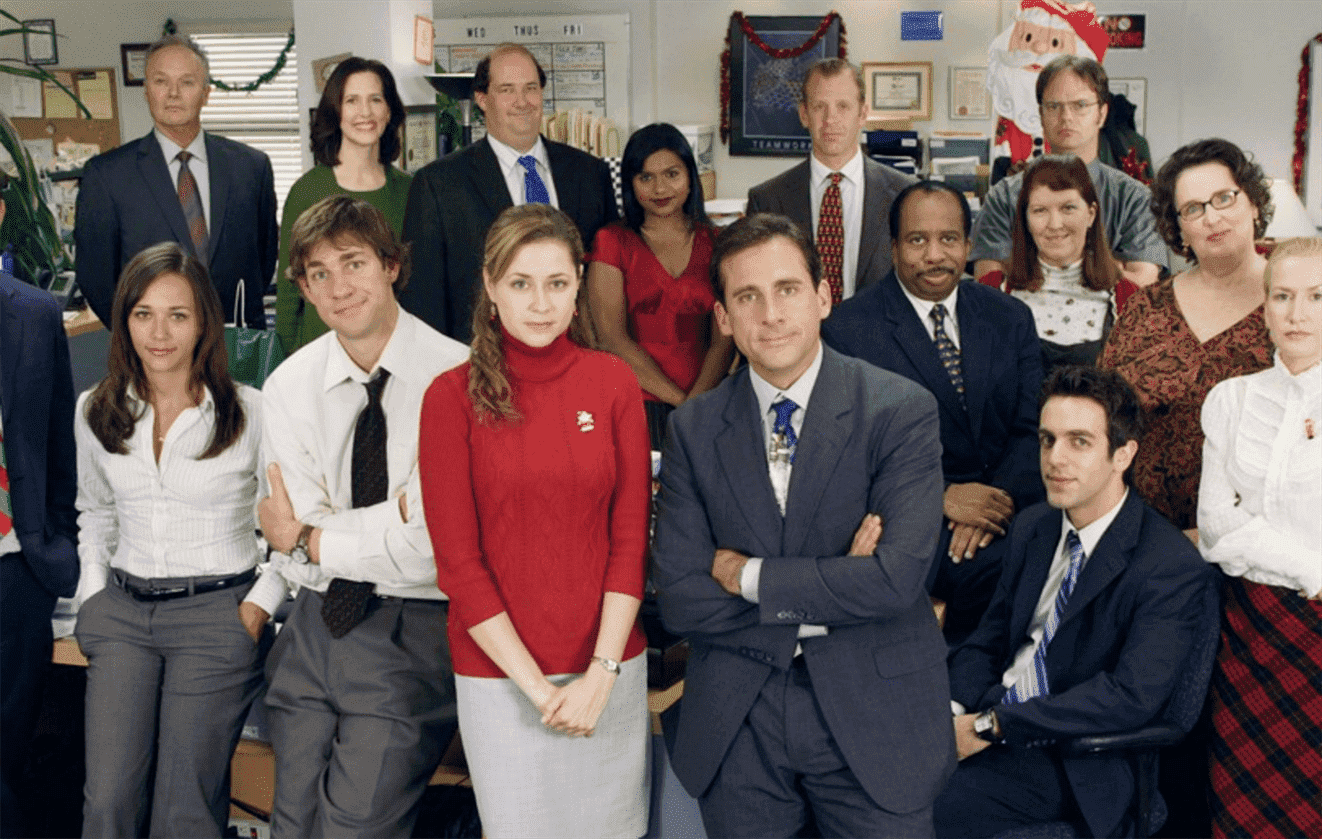Table of Contents
Perhaps you like working from home because you enjoy the quiet or work best when alone. Or maybe you like the days when you come into the office more since you thrive off of social interactions. Whatever the case may be, most of these traits can be attributed to what kind of a personality someone has.
Sometimes it is important to understand the different personality types in the workplace, especially as a manager or a coworking space owner. By being familiar with the different types of people, you will be able to manage situations and grasp a sense of people’s behaviours as well as your own.
Myers-Briggs personality
If you aren’t familiar with the Myers-Briggs personality types or MBTI, it basically is a way of categorizing someone’s personality and temperament. This indicator claims that everyone falls under a category. There are 16 personality types and each is unique and has special roles associated with them. Each letter stands for something different and together they make up a whole individual.
E/I: These two letters stand for Extroversion and Introversion. Presumably, everyone is one of these, but since most of these categories run on a spectrum some people may be both in some ways. Extroverts tend to gain energy from being around large groups of people and meeting new ones, while introverts gain energy by spending time alone or with fewer people.
N/S: These letters stand for Intuition or Sensing which is related to how someone takes in information. For example, sensors focus on their five senses to take information in, while intuitive types are more interested in theories and breaking down ideas.
F/T: These letters stand for Feeling or Thinking. This is how people make decisions. Feeling types make decisions based on how they feel while thinking types make decisions that are more logical.
P/J: These last letters have to do with organization and how one goes about that. The letters stand for Perceiving or Judging. Perceiving types are flexible and like to leave things open so that they can change their minds while judging personality types are more structural and prefer things to be planned out ahead.
Now that you know what each letter stands for, we can start looking at the different personality types in relation to The Office and help you make a connection between them and personalities in the workplace. Below we’ve created a list of types of personalities so that you can go through each and understand them somewhat.
ESTJ: Holly
Role: The executive
ESTJs are sensible, realistic, and straightforward. ESTJs are dedicated traditionalists who thrive on taking command of initiatives and people. Decisive and swift to put plans into action. They organize projects and people to get things done, with a focus on achieving results quickly and feasibly. They take care of the little things. ESTJs are disciplined rule-following and responsible people who like to get things done efficiently. They approach undertakings in a systematic, logical manner. They have a clear set of rational principles, adhere to them consistently, and expect others to do the same. They are adamant about putting their plans into action. You can motivate these types by showing them that you value and respect the rules, which will in turn make them feel valued and respected.
Holly Flax is a classic example of ESTJs work personality, and can clearly be seen as adhering to the rules and sticking to her own principles. Holly is the perfect person for the HR department as she loves rules and order.
INTJ: Darryl
Role: The Architect
The architect has a unique mind and strong desire to put their ideas into action and achieve their objectives, although their sharp minds, while confident and determined, might make them appear arrogant or judgemental to others. INTJs are the personalities in the workplace that hold themselves to high standards of competence and performance and are skeptical and self-reliant. They are also big on privacy and independence. In the workplace, architects are also diligent workers who would rather work alone than in a group. They also enjoy sifting through data.
Darryl Philbin is a great example of an architect, as he is calm, private, and very much likes to work alone. He is a good example of hard work and creativity, along with never settling in his career.
ENTJ: Michael
Role: The Commander
ENTJs are natural leaders, as their role would suggest. ENTJs are extroverted and assume leadership very quickly. ENTJs might be a little forceful in presenting their ideas, but they are quick to implement systems that solve organizational issues. They like to set big goals that may not be easily achieved but are usually well informed and enjoy expanding their knowledge and sharing it with others.
Michael is a great example of being the commander of work personalities. He sets himself up for big goals and is very determined to achieve them no matter what. He also is not fully able to emphasize other people’s feelings.
ENFJ: Kelly
Role: The Protagonist
ENFJs are full of passion and charisma. They are warm, empathetic, and responsible. They are sociable and like to facilitate others in a group and prove their leadership skills. They are able to see potential in other people and motivate them with their ideas. They find potential in people and want to help them fulfill it.
Kelly Kapoor is a great example of an ENFJ in the workplace. We can see her sociability and her loyalty towards Ryan who she always helped untap his true potential.
INFJ: Angela
Role: The Advocate
INFJs are nurturers who are creative and compassionate, with a high level of personal integrity and a desire to help others succeed. In ideas, relationships, and material belongings, INFJs look for meaning and connection. They create a clear picture of how to effectively serve the common good. In terms of putting their vision into action, they are well-organized and resolute. They are curious about others and want to know what motivates them. They are conscientious and dedicated to their core ideals. They create a clear picture of how to effectively serve the common good. In terms of putting their vision into action, they are well-organized and resolute. They have a knack for coming up with unique answers to people’s problems, and they are creative and dedicated.
Angela Martin is a great example of an INFJ as she is extremely connected and dedicated to her core beliefs. She is also organized and independent which depicts how INFJs would be in the workplace.
INTP: Dwight
Role: The Logician
INTPs attempt to come up with logical reasons for everything that piques their curiosity. Theoretical and abstract, with a preference for ideas over a social connection. They are philosophical thinkers who are enthralled by reasoning, systems, and design. They are discrete, confined, adaptive, and flexible, and they have an uncommon capacity to deeply concentrate on a problem in their field of interest in order to solve it. At times skeptical or critical, INTPs are always analytical. They are focused on theory and seek out the universal principle that underpins all they observe.
Dwight Schrute is no doubt a clear-cut example of the logician. He spends most of his time analyzing situations as well as using logic in every single one, trying to understand the deeper meaning. Of all the different personality types, INTPs are unique in how they view the world and go about solving issues.
ESFJ: Phyllis
Role: The Consul
ESFJs are kind, warmhearted and cooperative. They are very in-tune with their emotional environment and very careful and attentive to other people’s feelings as well as the way others perceive them. They value harmony and peace in their environment, especially the workplace and strive to achieve that. ESTJs like to work in teams and complete goals precisely and on time. ESFJs are attentive and notice what people need in their day-to-day life and try to provide it for them. They are loyal and always follow through no matter how small the task may be.
Phyllis Vance is a great example of an ESFJ in the workplace. She is kind, soft-spoken and likes for everyone to get along without much conflict.
ISTJ: Oscar
Role: The Logistician
Not to be confused with the logician, ISTJs are serious and quiet and earn their success and high achievements through thoroughness and reliability. They are responsible and organized throughout their work life, as well as their personal lives. They strive to create and enforce order and rules in their systems and workplace. They often decide logically what should be done and work towards it at a steady pace despite other obstacles.
Oscar Martinez is a great example of an ISTJ as he is focused, driven, and reliable. He is always the person Michael contacts when he needs some advice on financial matters, making him reliable. In the workplace, someone like Oscar does well in a highly organized setting with logical tasks and a clear-cut breakdown of responsibilities.
ESTP: Ryan
Role: The Entrepreneur
ESTPs are flexible and tolerant but they take a pragmatic approach to something that is mostly for the intention of immediate results. They learn best through doing and are energetic thrill-seekers. Anything too technical or theoretical tends to bore them, and they are more spontaneous and in the moment than anything else. They have a dynamic energy that they bring into their relationships and interactions.
Ryan Howard is the perfect ESTP example. He is driven and focused on growing his ideas in order to achieve fast and effective results. He is a thrill seeker and feels alive when he is put on the spot and is asked to perform quickly and effectively.
ESFP: Andy
Role: The Entertainer
ESFPs are spontaneous, energetic, friendly, accepting, outgoing and much more. They are lovers of life including people, food, clothes, and nature. They are flexible and spontaneous and are ready to adapt to new environments without an issue. They like working with others and manage to make work fun, as well as bringing a realistic approach to working. They learn best by trying new things with others. They are very entertainers who charm and engage people around them.
Andy Bernard is an ESFP that is just as friendly and energetic as they can get. He likes to sing and make things fun and is always up for anything no matter what it is or what time it is.
ENFP: Erin
Role: The Campaigner
ENFPs are energetic, warm, and passionate. They love to help others explore their creativity. They are flexible and like to give lots of appreciation and support to their peers. They see many possibilities in their lives and are very creative and zealous. They are able to make connections between events and information fast and maintain their work based on the patterns that they have experienced.
Erin Hannon is an example of an ENFP as she is extremely encouraging to anyone she meets and is very warm and enthusiastic. She is a great supporter and in the workplace, someone like her would thrive off of a role that would allow them to affirm others.
ENTP: Jan
Role: The Debater
ENTPs are motivated by finding solutions to intellectually difficult issues. They are smart, curious, attentive, and like to have a throughout understanding of people, systems, and principles. They are quick, alert, and outspoken and are resourceful in solving problems. They are bored by routine and like to solve things differently each time in order to keep up the excitement.
Jan Levinson is an ENTP that is very outspoken and motivated by finding solutions to her problems, even if that may be in unconventional ways. She is smart and goes after what she wants, and in the workplace someone like her values independence and thrives off intellectual tasks.
ISTP: Toby
Role: The Virtuoso
ISTPs are rational, tolerant, and easy-going. They are quiet and like to observe until a problem arises, to which they quickly find a solution. They are observant and have an understanding of the mechanics of how things work. They like to offer practical solutions to their problems and they value efficiency. They like to use their logic to go through a lot of data and isolate a core problem.
Toby Flenderson is a classic example of an ISTP. He is quiet, yet when something happens in the office where HR is needed, he will come up with a rational solution that he will implement graciously. He is extremely tolerant of Michael, regardless of how many times Michael brings him down, and likes to observe rather than engage.
ISFP: Meredith
Role: The Adventurer
ISFPs enjoy the present moment and what’s going on around them at a specific moment in time. They are unpredictable but are loyal and committed to the people and values that are important to them. They don’t force their opinions on other people and enjoy their daily lives with a happy kind of enthusiasm. They are clearly flexible and very spontaneous and like to take life day by day.
Meredith Palmer is an example of an ISFP that is clearly very adventurous and in the moment. She enjoys her life and likes to take it one day at a time, while also looking for ways to fulfill her life. In the workplace, ISFP personalities can thrive by being given special missions that are exciting and different.
INFP: Pam
Role: The Mediator
INPFs are idealistic and loyal to their values as well as the people who they deem as the most important in their lives. They pursue truth and meaning and strive for a better future. They try to understand people and help them fulfill their potential. They are adaptable, flexible, and acceptable unless their core values are threatened. They are curious and quick to see possibilities.
Pam is a great example of an INFP as she is quiet and gentle and sticks to her beliefs when it comes to making decisions and bringing some order into the office. She often relies mostly on her emotions rather than logic and does what feels right to her, proving she is very in tune with her ideas of right and wrong. In the workplace, it is important for INFPs to feel like they are doing something meaningful and helping people in some way.
ISFJ: Jim
Role: The Defender
ISFJs are quiet, friendly, and responsible. They are practical, compassionate, and caring and motivated to help and provide for others. They like to have an orderly and peaceful environment at work and home. They are always concerned with how others feel and try to be there for them.
Jim Halpert is definitely an ISFJ. He is quiet yet friendly, practical yet compassionate. In a workplace, someone like Jim thrives off of having a strong sense of duty towards others.
